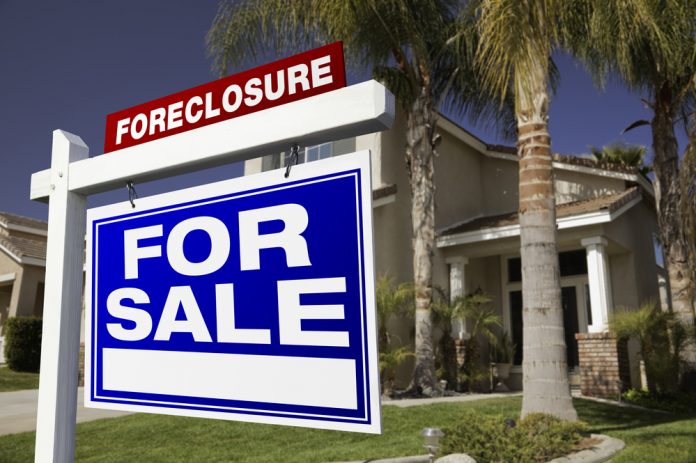
Buying Foreclosures in Alberta
If you’re in the market for a new property, you’ve likely come across the intriguing prospect of buying a foreclosure property in Alberta. These properties become available when the owner has defaulted on their mortgage, prompting the lender to initiate legal proceedings to sell the property and recoup their investment. The result is often an opportunity to snag a property for less than its market value. But as enticing as this may sound, it comes with its fair share of risks and rewards that every potential buyer should be aware of.
How to Buy a Foreclosure Property in Alberta

Before we delve into the risks and rewards, let’s first understand how you can go about buying a foreclosure in Alberta. Your realtor can be a valuable resource in guiding you toward local listings that feature foreclosure properties. The primary difference when buying a foreclosure property lies in the identity of the seller.
There are two primary methods of buying foreclosures in Alberta:
- Judicial Sale: In this scenario, if you make an offer to purchase a property currently undergoing the foreclosure process, the court, upon satisfaction with your offer, can issue an order confirming the sale and transferring the title to you as the purchaser. Importantly, the property’s title is never transferred to the bank or lender in this case.
- Direct Purchase from the Bank: When there’s no suitable purchaser during the foreclosure proceedings, the court will order the foreclosure and transfer the property’s title to the bank. Subsequently, the bank lists the property for sale, and you may have the opportunity to buy it directly from the bank.
Risks Associated with Buying Alberta Foreclosure Properties

It’s crucial to be aware of the risks involved when considering the purchase of a foreclosure property in Alberta:
- Lack of Guarantees: The primary risk is that foreclosure properties typically do not come with the guarantees that accompany properties bought from previous owners. This means that you may not have the same assurance regarding the property’s condition. To mitigate this risk, you can consider options like purchasing title insurance and conducting thorough property inspections.
- Inflexibility in Offers: With judicial sales, it may not always be possible to attach conditions to your offer. This lack of flexibility can lead to difficulties in obtaining financing and make it challenging to perform necessary inspections.
- Potential Delays: The process of buying a foreclosure property can sometimes result in delays that you might not experience with a traditional property purchase. These delays can be due to legal procedures or other complications inherent to the foreclosure process.
- Hidden Costs: Foreclosure properties may come with hidden costs such as unpaid taxes, liens, or utility bills that the buyer might have to settle. Conducting a title search can help identify these issues.
- Vandalism and Neglect: Foreclosed properties are often vacant for extended periods, making them susceptible to vandalism, theft, and general neglect. These issues can lead to significant repair costs.
- Legal Complications: The foreclosure process can involve various legal complications, such as disputes over the property’s ownership or challenges from the former owner. Legal advice is essential to navigate these issues.
- Emotional Stress: The process of buying a foreclosure can be emotionally stressful due to uncertainties and potential complications. Buyers should be prepared for the challenges and have a contingency plan.By being aware of these risks and taking appropriate precautions, buyers can make more informed decisions when considering the purchase of foreclosure properties in Alberta.
Rewards of Buying Foreclosure Properties

While there are inherent risks, there are also potential rewards in buying a foreclosure property in Alberta:
- Savings: One of the primary incentives is the possibility of securing a property at a lower cost, as the bank’s main concern is recouping its expenses. Though Alberta’s foreclosure procedure aims to ensure that properties aren’t sold significantly below their market value, in a competitive market, you may still find a good deal.
- Opportunity for Property Flippers: Property flippers, both newcomers and experienced professionals, can see the potential for significant profits by investing in foreclosure properties. They can buy distressed properties, refurbish them, and then sell them at a profit, sometimes even more so if the property is located in a desirable area.
- Dropped Fees: Some foreclosure properties may come with the advantage of having liens, back taxes, and unpaid loans removed by the mortgage lender. This cost-saving opportunity can further enhance the financial benefits of buying a foreclosure property.
- Investment Potential: Foreclosed properties can be a great addition to a real estate investment portfolio, offering rental income opportunities once refurbished.
- Instant Equity: Buying a foreclosure property below market value can provide instant equity, which can be leveraged for future investments or financial stability.
- Desirable Locations: Foreclosure properties are sometimes located in desirable neighbourhoods, providing buyers a chance to own property in a coveted area at a lower price.
- Negotiation Power: Buyers may have more negotiation power with banks eager to offload a foreclosed property, potentially leading to favourable terms and conditions.
Conclusion
Buying Alberta foreclosures presents a mixed bag of risks and rewards. While it can offer cost savings and lucrative opportunities, it also requires a keen eye for potential issues and an understanding of the unique challenges that come with these properties. If you’re considering buying a foreclosure in Alberta, thorough research, and consultation with experts in real estate and legal matters are essential to make an informed decision. So, before diving into the world of foreclosure properties and foreclosure purchases, take the time to evaluate whether it’s the right move for you.
FAQ’s
What’s a Judicial Sale or Judicial Foreclosure?
A judicial sale, also known as judicial foreclosures, is a legal process where a property is sold under the direct supervision of a court. This process typically occurs when a property owner has defaulted on their mortgage or other debt secured by the property. In a judicial foreclosure, the lender initiates a lawsuit against the borrower, and if the court rules in favor of the lender, the property is ordered to be sold at a public auction.
The proceeds from the judicial sale are used to pay off the outstanding debt, and any remaining funds may be returned to the borrower. This court-supervised process ensures that the sale is conducted fairly and that the rights of all parties involved, including the borrower, lender, and any other stakeholders, are protected. By involving the court, a judicial sale offers transparency and legal oversight, which can be beneficial in complex foreclosure situations.
What is the Difference Between a Foreclosed Property and a Foreclosure Property?
Foreclosure refers to the legal process by which a lender attempts to recover the balance of a loan from a borrower who has stopped making payments. This process typically involves the sale of the mortgaged property.
Foreclosed refers to the status of the property after the foreclosure process has been completed. When a property is “foreclosed,” it means that the lender has taken possession of the property and it is now owned by the lender, often with the intention of selling it to recover the loan amount.
Hi! I’m Erin Crocker. I’m a real estate lawyer with over 10 years of experience in Alberta and British Columbia real estate law. I love technology and efficiency. I’m on a mission to create a modern, digital closing experience for buyers and sellers through technology, transparency and sharing knowledge.